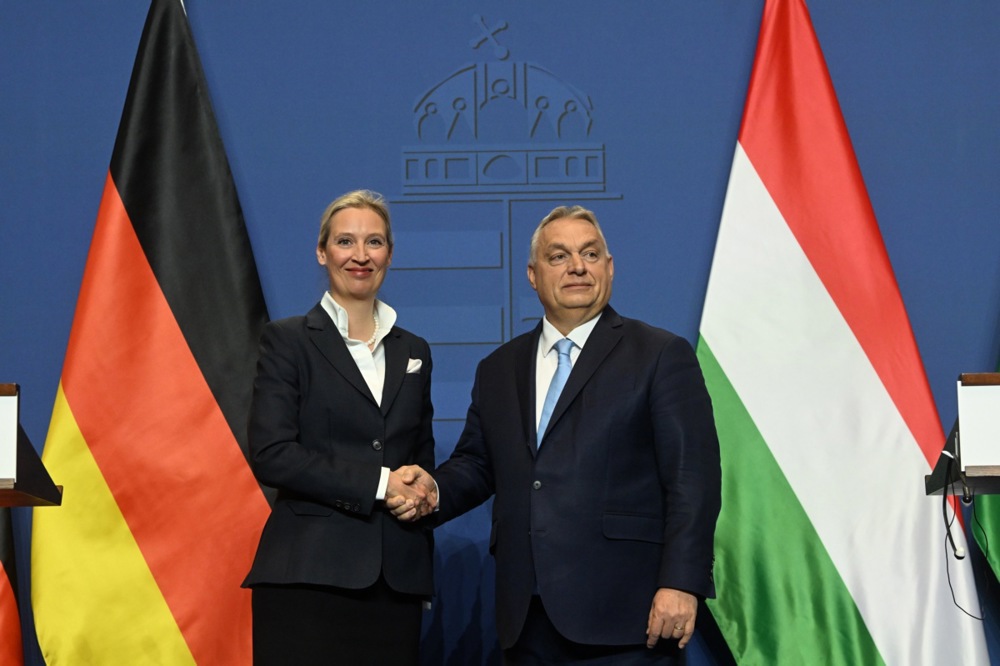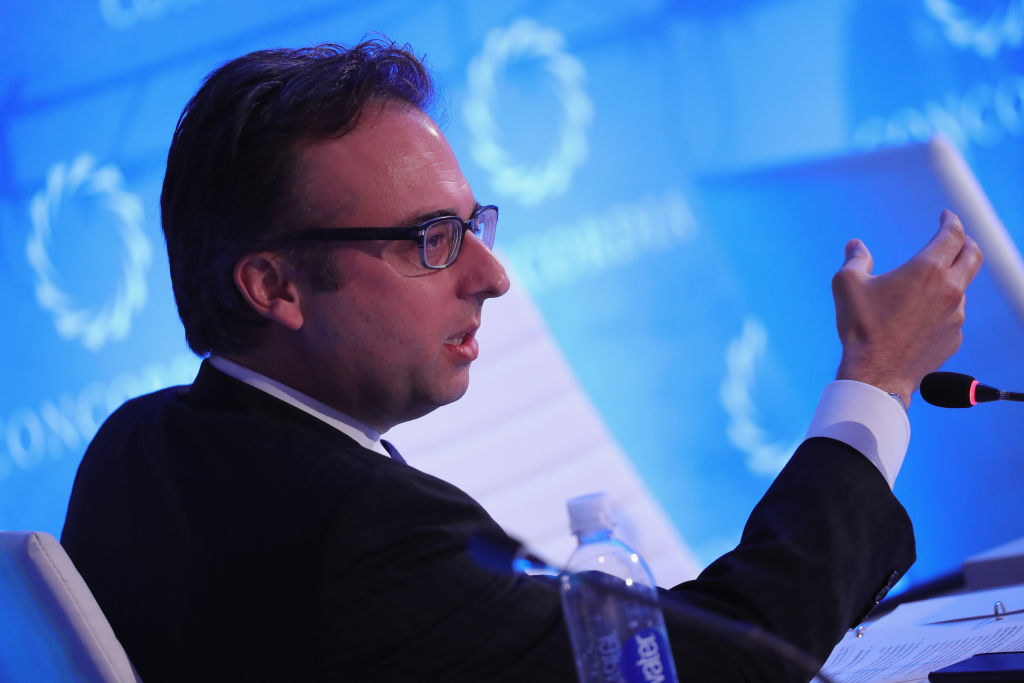For a moment last week, it appeared that European Union officials finally had realised that the 20th century was never coming back. At the Munich Security Conference, Vice President JD Vance delivered a stemwinder of a speech, castigating European states (and union officials) for various hypocrisies when it comes to the protection of democracy. His speech, though well-received on the American Right and by populist Europeans desperate for a MEGA (“Make Europe Great Again”) movement of their own, got a cold response in the hall, as slowly it dawned on Europeans that this second Trump administration would differ greatly from the first.
But that moment of realization lasted less than 24 hours. Later in the conference, two other Republicans spoke: Senator Lindsey Graham (Republican of South Carolina) and Senator Roger Wicker (Republican of Mississippi), both of whom delivered an essentially opposite message: all is well.
Wicker, the influential chairman of the Armed Services Committee, critiqued Defence Secretary Pete Hegseth for saying NATO membership was effectively off the table for Ukraine. Graham, elsewhere, went even further, insisting that, “Trump now sees Ukraine differently.”
“These people are sitting on literally a gold mine…I showed him a map.”
The “gold mine” to which Graham is referring is Ukraine’s mineral resources, one-half of which the Trump administration has reportedly considered claiming in exchange for back-paying Ukrainian aid.
Other speakers took a different tack: instead of massaging the message, they confronted it. One, German Defence Minister Boris Pistorius, proclaimed that Vance’s comparison of European speech restrictions to those of authoritarian regimes to be “unacceptable,” echoing the statements of his chancellor, Olaf Scholz.
One could imagine the torrent of wind blowing out of Munich as the attendees breathed out a sigh of relief at these statements; they surely recalled a similar pattern in the first Trump administration. First, Trump would say something shocking. But then, someone else – a moderate figure, or an anonymous staffer – would confirm in an off-the-record interview that, “Of course this won’t really happen.” At the same time, a bold European politician would angrily bang their fist and declare such a thing unacceptable.
This is no hypothetical. Take Trump’s plan in 2020 to move one-third of American troops out of Germany, either to Poland or simply back to the United States. Immediately, Europeans spoke out – with one German advisor to Angela Merkel literally using Pistorius’ verbiage, calling the move “unacceptable” – while, at the same time, senators acted to calm European nerves and ultimately blocked the move.
And now it seems that Europeans, and liberal internationalists, have convinced themselves that they are watching the same show. It is why the Polish foreign minister is flatly saying that the European Union will not create an army, even though Ukrainian President Volodymyr Zelensky got loud applause in his speech for urging Europe to create one: because it is easy to clap for Zelensky as a way of slapping back with two hands at the Trump administration, instead of actually doing the work?
It is not something Europe is interested in doing. Yes, they are slowly agreeing to raise defence spending targets – even though countries like Belgium recently excitedly announced that they will reach NATO’s old target of spending 2 per cent of GDP on defence by 2029 – but raising the target from 2 per cent to 3 per cent will not make much of a difference in the long run. European capitals would need to shift to spending increasingly more, which will mean raising taxes or cutting social safety nets. But the aforementioned statements have allowed them to avoid such nightmarish decisions.
At least, in their own minds. But this second time around, things are clearly different. For one, in the first Trump administration it was usually then-Vice President Mike Pence who would play the “good cop” to Trump’s “bad cop.” Pence was an old-school Republican who voted for the Iraq War, and frequently reassured – on defence-related issues – Europeans of America’s commitments. But Vice President JD Vance fought in the Iraq War, and thinks the war was a mistake – and is likewise sceptical of defending a continent unwilling to defend itself. Pence, like Wicker and Graham, in many ways represent the GOP’s past positions on these issues; Vance represents the future. This does not mean Wicker and Graham are not influential and have not done much for the conservative movement in America; both are Senate committee chairs and wield a powerful influence. But they are not speaking for the Trump administration.
And Pistorius? He’s far from a strong figure. In 2020, when Merkel’s advisor called Trump’s desire to move his America’s troops “unacceptable,” Merkel’s party, the CDU, was riding high in the polls. But Pistorius’ SPD today is a distant third place – behind the AfD that Vance embraced and Pistorius lambasted. His moral authority is non-existent, as soon will be his ability to make weighty statements on what is acceptable.
Some European officials were clearly disturbed, however. Christopher Heusgen, the chair of the Munich Security Conference and a Merkel advisor for over a decade, cried as he delivered his final speech (he is retiring from the position), in which he thanked politicians for pushing back on Vance’s statements. Fittingly, Heusgen proudly told Der Spiegel in 2021 that he had “eliminated the term ‘the West’ from [his] vocabulary.” Why? Because for Heusgen, “it is no longer about a dispute between the West and the East today, but between states that adhere to a rules-based international order…and those that do not.” He added: “The West has become a negative fighting word that the Russians and Chinese use against us, along the lines of: The West is yesterday’s news.”
Such a vision of the world – one where “leaders” give up the terminology to describe their own civilization because other people use it negatively, and where a “rules-based international order” is held up over national interest – is dead. Brussels and liberal internationalists can refuse to see that if they want. It won’t change reality.





Ready for an ‘abomination?’ In American history, tariffs have consequences